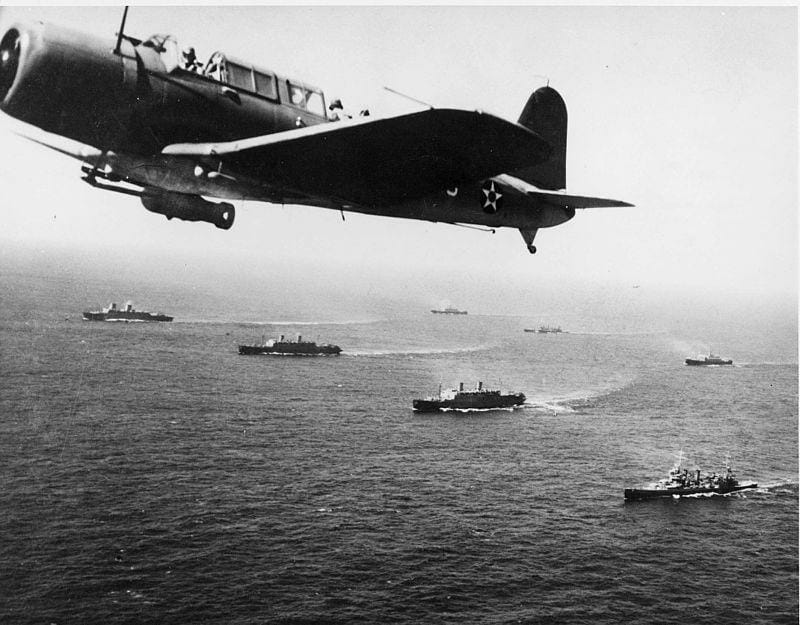Alternative history is a tricky business. We cannot objectively judge decisions from the past using categories of today. However, now after more than 70 years have passed we can look at WW2 from a different perspective. We can see mistakes opponents made in their efforts to reach the ultimate victory. In this article we are going to briefly look into 5 mistakes that did allow the Allies to reach ultimate victory sooner.
One has to keep in mind that this is not a serious scientific article and it does not pretend to be one. We have information about consequences that people making decisions during the Second World War did not. Therefore, we are breaching the principle of historism, which does not necessarily bring any value to the field. However, it is a fun thing to do, so let’s just jump into it.
Underrating military power of Japan
You all know how it went – Japan attacked Pearl Harbor without declaring war. This later was considered a war crime and the success of the operation was attributed to the surprise factor. But why was it such a surprise? Partly because US completely underestimated what Japanese military was capable of.

Japan was consider severely underdeveloped and people were thought to be somewhat of savages. However, this view had to change quickly as Japan started occupying one island over the other. Japanese submarines proved to be quite advanced and soldiers – devoted and brave. History enthusiast Dougas Stychas says that there is nothing as vast as Japanese advance in the beginning of WW2 – it was the biggest offensive operation in history.
If US evaluated Japan better, maybe it was possible to prevent Pearl Harbor attack? Or maybe the entire war could’ve been prevented if US with allies closed Japan preventing it from expanding its territory and power?
Demanding “unconditional surrender”
So called “unconditional surrender” doctrine came out of Casablanca conference. It was somewhat of a surprise to Winston Churchill and it is not entirely clear if Franklin D. Roosevelt fully understood his demand. But after it was said, it was basically set in stone, meaning that the war had to end with Germany surrendering unconditionally.

This worked on the side of German propaganda. Joseph Goebbels, propaganda minister, used this as an opportunity to mobilize Germany, saying that the state is going to be drawn into slavery if it loses the war. This demand really prolonged the WW2 and made negotiations completely impossible.
Late introduction of convoy system
German U-Boats were notoriously attacking American merchant and supply ships sinking one after another. The reason why this hunt was so easy was lack of protection – convoy system was not in place at the beginning of the Battle of the Atlantic. Once it was introduced and war ships started protecting ships carrying important supplies, German Navy has a much more difficult job attacking and sinking them.

However, some historians say that convoy system could not have been introduced earlier, because of lack of war ships. Unsuitable convoy is worse than merchant ships sailing alone. On the other hand, if convoy system was introduced, assuming it was possible, a lot of ship losses could have been avoided and supply chain to Europe would have been reliable from the beginning.
Defending Philippines in 1942
Philippines were essentially lost in 1942, but General Douglas MacArthur decided to defend these islands for as long as possible. This caused a major loss for US forces, 76 thousand American and Filipino soldiers being captured. Abandoning the plan to defend Philippines in such a difficult situation could have saved these people and a lot of resources.

Operation Torch
While we can’t say that the entire operation was a mistake, the beginning of it was marked with some questionable decisions. In 1942 Allies understood the strategic value of Tunisia. Occupying these lands could help secure Egypt and pressurize Germany from the South. British wanted to start the operation from Algeria – as close to Tunisia as possible. Meanwhile US feared that Gibraltar is going to be lost as Spain may enter the war on German side. This would mean isolation of forces in Northern Africa and supply ships could not enter Mediterranean. Compromised was reached and in November 8 of 1942 US forces landed in Casablanca, and British – in Orano and Algiers. Germany took over Tunisia and defended until May 1943. Spain, of course, never entered the war.

But who knew that Spain is not going to stand side by side with Germany? While operation Torch was successful, it did not ensure quick domination in Northern Africa.
That is all we have for this article. What other mistakes Allies made that you would include in this list?
We invite you to read other articles about alternative history of WW2:
5 ways Hitler could’ve won the Second World War
5 mistakes that prevented Axis from winning the Second World War




